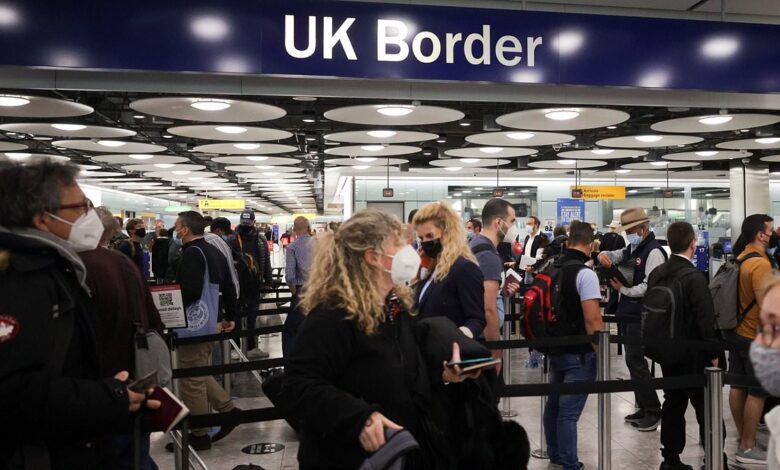Outrage as British tourists going away to EU countries could face ‘lie detector’ test carried out by artificial intelligence before being granted entry

By Abul Taher Security Correspondent
22:23 15 Jun 2024, updated 22:26 15 Jun 2024
British tourists face a complicated ‘lie detector’ test carried out by artificial intelligence before being granted entry into Europe, The Mail on Sunday can reveal.
As the EU tightens its borders post-Brexit, new ‘Orwellian-style’ checks have been trialled. They analyse a person’s facial movements and body gestures as they fill in their application form online or at an airport or ferry port.
And if the AI software deems someone to be lying or acting suspiciously, their file is flagged up to an immigration officer, who can do further checks and refuse entry.
Experts warn the scheme, which the EU is considering, could lead to widespread rejections of visas, including discrimination against those with disabilities.
It is understood the scheme will be phased in after an initial Entry-Exit System (EES) – due to affect all British travellers from October 6 – is implemented, along with a visa-waiver scheme called the European Travel Information and Authorisation System (ETIAS) for short stays of up to 90 days. ETIAS will cost seven euros (about £6).
The plan is for the AI software to be incorporated into both systems to improve operational capacity.
Click here to resize this module
The scheme, criticised by civil rights groups and politicians across Europe, has already undergone successful trials, known as iBorderCtrl and TRESPASS.
Last night, Patrick Breyer, a German MEP, dismissed the ‘lie detector’ test as ‘pseudoscience’, saying it is not possible to determine if someone is lying from facial gestures. He added: ‘It will discriminate against anyone who is disabled or who has an anxious personality. It will not work.’
At present, British citizens travelling to the EU for stays of up to 90 days have their passports stamped when entering an air, land or sea port.
But the EES will see travellers having their biometric data, including fingerprints and facial image, collected the first time they visit Europe from October 6 and then every three years.
From the middle of next year, ETIAS will be introduced for short stays of up to 90 days, with Britons having to apply online at least a month before travel, like they do for a US ESTA visa waiver.
Eventually, Britons could be interviewed online by an avatar immigration officer, who will ask questions such as their name, date of birth and purpose of travel. During this video interview, AI will examine their eye movements, facial expressions and body language to see if they are lying.
Click here to resize this module
Personal data of anyone applying is then checked against databases that include lists of terrorists, criminals, asylum seekers and illegal immigrants.
One pilot scheme even checked an applicant’s social media accounts before allowing them entry, raising fears political or controversial comments made on X or Facebook could lead to someone being banned.
In the iBorderCtrl trial, carried out between 2016 and 2019 in Greece, Hungary and Latvia, avatars were used to interview applicants and monitor their expressions. TRESPASS, tested until November 2021, analysed ‘facial expressions, gestures and body postures’ to assess if a ‘traveller is telling the truth’, according to official papers.
The Artificial Intelligence Act does not ban border agencies from using such technology.
The EU is also creating a super-database called the Common Identity Repository (CIR), which will hold 300 million records of people, including terrorists and criminals. The data of all Britons entering the EU will end up in the CIR.
EU-LISA, the body that oversees border and security IT infrastructure, was contacted for comment.



